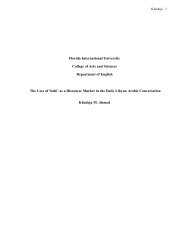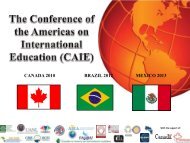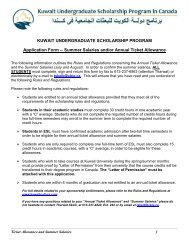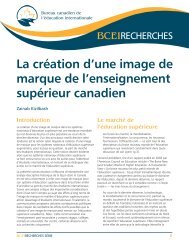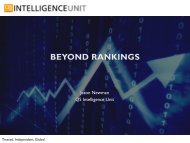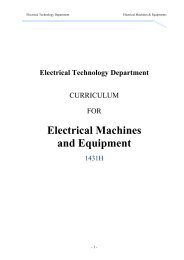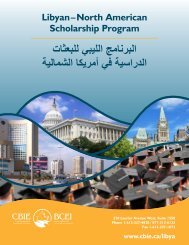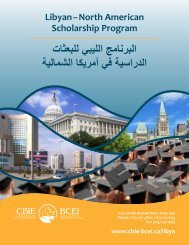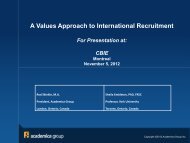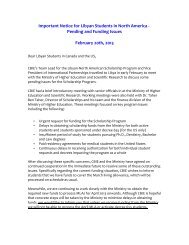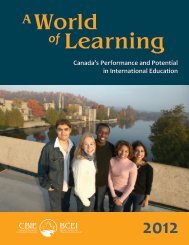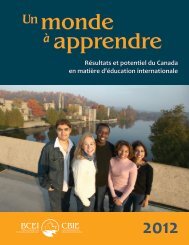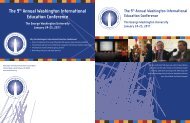Creating a New Historical Perspective: EU and the Wider World ...
Creating a New Historical Perspective: EU and the Wider World ...
Creating a New Historical Perspective: EU and the Wider World ...
You also want an ePaper? Increase the reach of your titles
YUMPU automatically turns print PDFs into web optimized ePapers that Google loves.
- are able to write <strong>and</strong> speak according to <strong>the</strong> various communication registers (informal,<br />
formal, scientific).<br />
- are able (1) to think in scientific terms, pose problems, ga<strong>the</strong>r data, analyse it<br />
<strong>and</strong> propose findings; (2) to work autonomously, organise complex efforts over a<br />
period of time, producing <strong>the</strong> required result on schedule.<br />
Qualification that signify completion of <strong>the</strong> second cycle in history are awarded<br />
to students who:<br />
- Have demonstrated (1) broad knowledge <strong>and</strong> underst<strong>and</strong>ing of historical processes<br />
<strong>and</strong> events, current debates <strong>and</strong> research orientations regarding <strong>the</strong>m; (2)<br />
knowledge of <strong>the</strong> principal <strong>the</strong>oretical approaches to history; (3) detailed knowledge<br />
<strong>and</strong> underst<strong>and</strong>ing of a particular period/<strong>the</strong>matic domain <strong>and</strong> <strong>the</strong> methodologies<br />
<strong>and</strong> historiographical debates regarding it.<br />
- are able (1) to retrieve, underst<strong>and</strong> <strong>and</strong> place archival material, historiographical<br />
contributions <strong>and</strong> debates in <strong>the</strong>ir context; (2) to use of appropriate terminology<br />
<strong>and</strong> modes of expression of <strong>the</strong> discipline in oral <strong>and</strong> written form in one’s<br />
own language <strong>and</strong> in a second language; (3) is able to use <strong>the</strong> methodological<br />
<strong>and</strong> practical tools of History <strong>and</strong> o<strong>the</strong>r sciences as needed; (4) is able to work in<br />
a team to complete specific tasks relating to <strong>the</strong> discipline (ga<strong>the</strong>ring <strong>and</strong> treating<br />
data, developing analyses, presenting results); (5) is able to participate actively<br />
<strong>and</strong> constructively in group work, outside one’s own speciality.<br />
- are able (1) to formulate a problem, address it with appropriate information<br />
<strong>and</strong> methodology, to arrive at a valid conclusion; (2) adhere to <strong>the</strong> st<strong>and</strong>ards<br />
required for scientific research <strong>and</strong> publication including critical awareness <strong>and</strong><br />
intellectual honesty; (3) is able to organise complex efforts in an imaginative<br />
way, integrating <strong>the</strong> results of diverse studies <strong>and</strong> analyses <strong>and</strong> producing <strong>the</strong><br />
required product according to <strong>the</strong> established deadlines.<br />
- are able to communicate <strong>the</strong>ir conclusions, orally an in writing, according to <strong>the</strong><br />
various communication registers (informal, formal, scientific).<br />
- are able to plan, carry out, complete <strong>and</strong> defend an individual research-based<br />
contribution to historiographical knowledge bearing on a significant problem.<br />
A fur<strong>the</strong>r challenge <strong>and</strong> opportunity has been created by <strong>the</strong> EQF, <strong>the</strong> European<br />
Qualifications Framework for Lifelong Learning. In this case that indications of<br />
level area are cumulative, as were <strong>the</strong> History Cycle Level Descriptors formulated<br />
in 2002; in <strong>the</strong> case of <strong>the</strong> EQF with <strong>the</strong> ambition of being able to comprise all<br />
phases of education, from that for <strong>the</strong> very young up to that for mature or retired<br />
learners. A Tuning-CLIOHWORLD working group has addressed this challenge<br />
in <strong>the</strong> framework of <strong>the</strong> HUMART project. Here below we present a draft of a<br />
History Qualifications Framework drawn up according to <strong>the</strong> EQF. It will be <strong>the</strong><br />
object of consultation, modification <strong>and</strong> validation in <strong>the</strong> coming months.<br />
54



